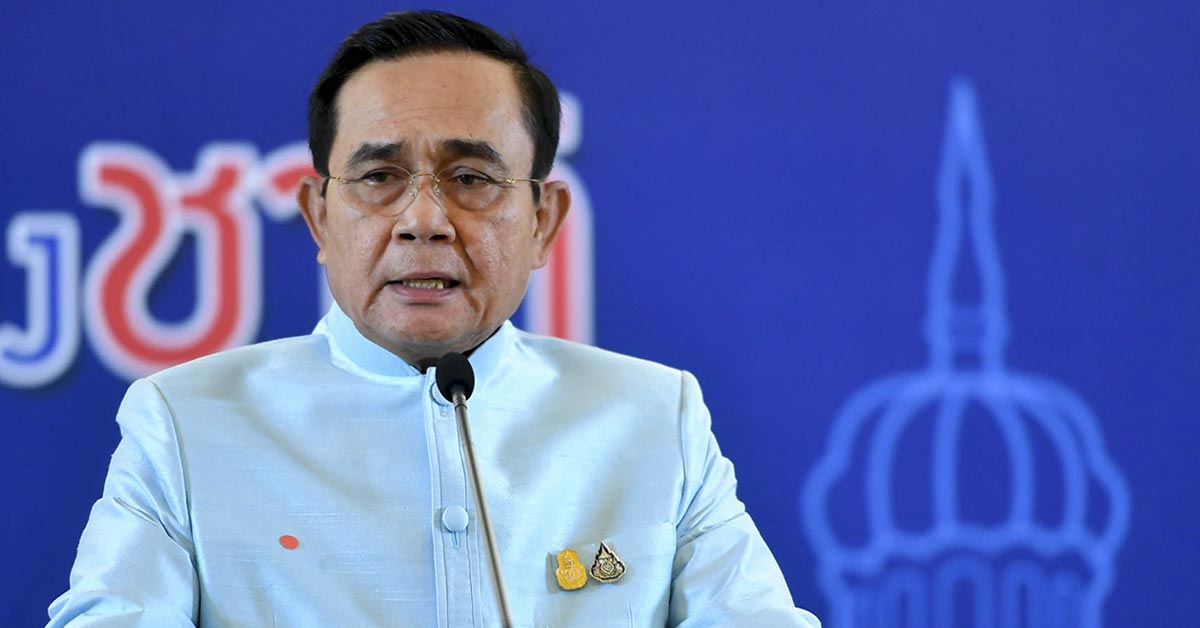Thailand's prime minister called for unity and urged the kingdom to "say no to the politics of hate" in a televised address on Thursday, following weeks of anti-government protests that have grown bolder in targeting Thai power.
The country has seen near-daily demonstrations by pro-democracy student-led groups demanding an overhaul of Prayut Chan-o-cha's administration and a rewrite of a 2017 military-scripted constitution.
In his address Thursday evening, the former army chief appealed to every Thai citizen to "redefine" the country's politics.
"We must... break the mould of old-world politics and 'us versus them'," the leader said.
"The future belongs to the young... let them lead the way and provide the moral leadership to show us all how to take the hard path of collaboration with people who may disagree with us."
Thailand has long been locked in a cycle of violent protests and coups, with the latest putsch in 2014 staged by Prayut.
His hold on power was extended with last year's election that took place under an army-authored constitution which analysts say tipped the scales in favour of his military-aligned party.
Discontent has risen after coronavirus lockdowns sent the economy into freefall and protesters have called for Prayut to step down.
A massive protest on Monday also saw organisers read out demands for the unassailable monarchy and activists call for frank discussion about its role.
The super-rich royal family, which commands an estimated fortune of up to US$60 billion, sits at the apex of Thai power, supported by the powerful military and the elite billionaire class.
It is shielded from criticism thanks to the kingdom's controversial royal defamation law, which carries a sentence of up to 15 years in prison per charge for anyone perceived as violating it.
The pro-democracy protesters have called for the law to be abolished.
'Unacceptable' To Thais
Prayut said earlier Thursday that much of the country does not believe in the pro-democracy cause, calling the demands of the movement "risky".
"It is unacceptable to the majority of Thais," he said.
Since Monday's demonstration at Thammasat University, more than 140 lecturers from all over the country have signed a petition supporting the organisers, saying their opinions were "based on the basic principles of democracy".
But about a dozen royalist demonstrators gathered Thursday near the Thammasat campus carrying signs calling for authorities to "prosecute those who insult the monarchy".
Prosecutions under the royal defamation law have slowed in recent years, but legal observers say the government has pivoted to other legislation to target dissent.
The digital economy minister on Tuesday said Facebook, Twitter and YouTube would receive court orders to remove 114 instances of "inappropriate content" or risk prosecution under the Computer Crimes Act.
Facebook declined to comment specifically on these cases, saying only that it has "a global process for government requests".
Two activists were arrested last week and then released on bail for allegedly committing sedition and breaking coronavirus rules when they took part in an 18 July rally.
The mostly young anti-government protesters do not appear to have a single leader, and have relied on social media campaigns to spread news of their rallies across the country. - AFP
